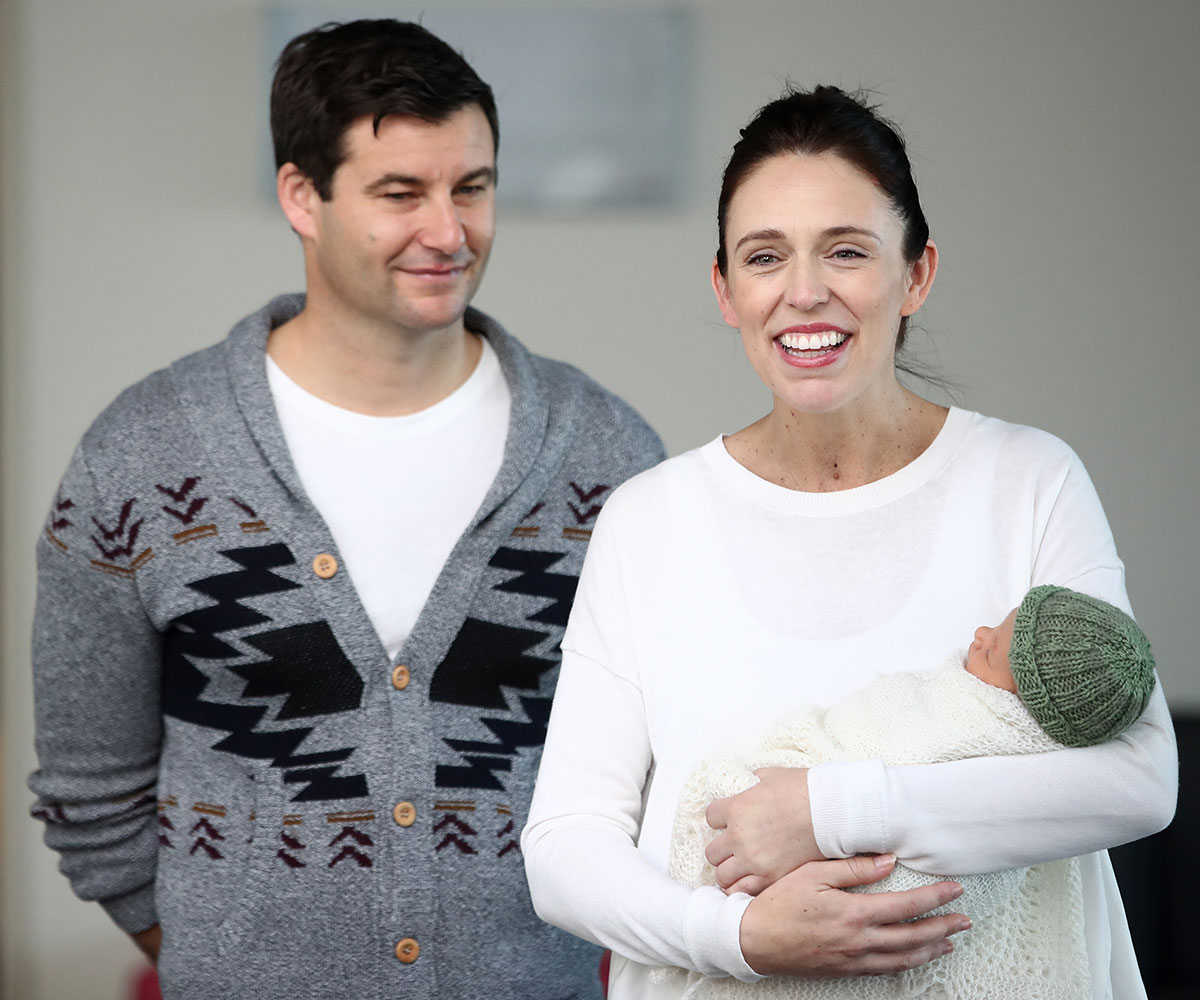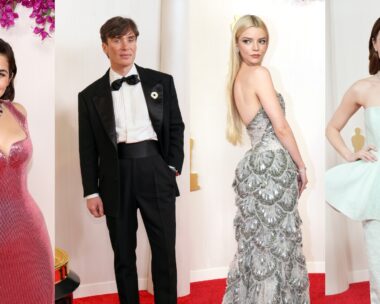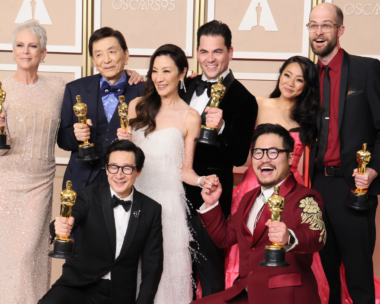Taika Waititi, actor, director and New Zealander of the year 2017 is really funny. His movies are hilarious, his Instagram is a bloody delight and any interview he participates in is sure to have you in stitches. But he also has a way of weaving political issues into his films and discussions that make you sit up and listen.
He has previously spoken out about racism for the Human Rights Commission ‘Give Nothing To Racism’ campaign (https://www.nowtolove.co.nz/news/latest-news/taika-waititi-in-give-nothing-to-racism-campaign-32966), and more recently incited some classic up-in-arms vitriol from noted foot-stampers all over the country when he said New Zealand was “racist as f****”. As well as his strong stance on racism, he is also a strong voice for child poverty and teen suicide, as he told audiences at the Toronto International Film Festival this week.
He voices his concerns in a straightforward way which the likes of Duncan Garner might stamp their feet about, but also in a way that is funny enough to make whatever he says really stick in your mind. The voices of dissent are there, but Duncan stamping his feet makes Taika’s words get more reach so we aren’t complaining.
During his appearance appeared in an hour long Toronto International Film Festival Master Class, in which he the celebrated filmmaker gave insights on being an internationally successful director from humble beginnings in New Zealand.
His interviewer, festival artistic director, Cameron Bailey asked him about that ability to talk about big issues with humour: “You take things that in other artists hands, other story tellers hands, are tragic, dysfunctional, that kind of stuff, that kind of material about people that don’t have a lot of stuff and have a lot of hardship in their life and you find jokes in it.
In answer, Taika cited New Zealand’s talent for making the best of a bad situation and having a laugh about it too. “I come from a culture that makes fun of themselves a lot. Very self-deprecating. The humour we find is in the situation we’re in.”
“I get in a lot of trouble when I mouth of about New Zealand. I’m like public enemy number one over there. Only because they say ‘oh New Zealand, what’s it like over there?’ and I say ‘oh, you know. Racist.’ And they say ‘eughhh you’re s’pose to be a spokesperson for this country.’ But it is. And it’s a f///*d up country. But it’s a beautiful country. I’m patriotic and I love my country and we’ve got a great prime minister now,” he said of Prime Minister Jacinda Ardern.
“Things are turning. We got a beautiful woman who’s a prime minister who’s, like, pregnant. And she just had a baby with her boyfriend. You know, she’s like, unapologetic about it and when she got in they were like what happens if you get pregnant and she’s like I’m not here to talk about my womb. I’m here to run a country. Like, it shouldn’t matter.”
When asked if his being biracial was an issue in the Maori community when he was in school, Taika admitted “No no the issue really was that I was smart,” citing the tall-poppy syndrome that tends to happen in New Zealand schools. “I’d have to pretend that I wasn’t smart enough”

Jacinda Ardern and her boyfriend Clarke Gayford
Using the phrase, “public enemy number one,” it is pretty clear Taika has a tumultuous relationship with his home country, but he can rest well assured that he is one of our brightest leading lights. And he mentioned his own introduction to film, seeing Akira as a young Kiwi in 1989.
“My mother took me to see Akira in 1989. And she said I’m gonna take you see a cartoon. And that was probably one of the seminal moments of my life. I realised oh you can mix these things up and there’s no rules really.”
That experience, he says, sparked his non-conventional viewpoint as a filmmaker. A viewpoint, it turns out, that is proving to be critical during a recession of ideas in Hollywood cinema: “We’re in a really cool place right now: Hollywood is running out of ideas,” he says.
It is more indigenous and ethnic filmmakers that Taika thinks is the answer to that problem. “They are scrambling for ideas and stories, and where do they turn? Indigenous people, ethnic people, they turn to Korea, Japan, they turn to anywhere outside of America for films that they can remake for things that are outside of their comfort zone, because that’s where the interesting stuff is.”
The festival showed a clip of Taika’s first film Two Cars, One Night a film that drew on his own experience of being a kid left in a car outside a pub while the adults went in and drank. A clip from Boy, the tale of a boy living in small town New Zealand in the 80s plays and Taika mentions a weird interview he had after it was released.

Two Cars, One Night
“I had this interview with this guy from National Geographic …and he was like ‘so tell me, when you took the, ahh, the cameras and the lights to your village, what was the reaction of the elders and the other villagers?’ Well, uhhhh, everyone pulled out their cell phones and took photos then they got bored coz film sets are boring as shit and then they left.”
He went on to talk about how Boy got a terrible review from Variety “I think the issue that the reviewer had was that no one was riding a whale,” he said, referring to arguably our most famous film, Whale Rider. “They were like ohh theres not enough cultural specificity…’ I was like uhhh this is pretty f////// specific, man.”
It seems that New Zealand is still seen in the mysterious far-away-island-of-mystery-and-magic that H.P. Lovecraft painted it as when he wrote The Call of Cthulhu – 92 years ago. We are far more advanced than our mystical image on the world stage. Taika voices the need for that to change. – People have suggested bizarre ideas to him like “Why don’t you put some more nose flutes in your film? Maybe that character is a spirit guide. Maybe that character goes to his grandmother for some advice.”
Taika has the answer to both the problem of Hollywood’s lack of ideas as well as the odd, primitive idea people have of New Zealand. “Indigenous people need to be telling their own stories.”

Boy
Films like Boy and Two Cars One Night illustrate that great stories come from non-Hollywood sources, and can be wildly successful. Even with the mind-boggling success of blockbuster Thor: Ragnarok, Taika proved the ideas of a biracial Kiwi can be just the thing to inject a bit of life into a pretty standard Hollywood formula.
Recounting his youth growing up in the house Boy was filmed in, how he had to hide his intelligence in school and mentions his biracial parentage, Taika points out an essential link between his background and the heights he has reached as a film maker. The two go hand in hand – he is a film maker of biracial, Kiwi origin. He is absolutely right that there is a freshness of ideas that comes from that unique and new-to-Hollywood origin.
In directors like Taika, we are seeing Hollywood embrace diverse film makers. The doors are opening to difference – and that is very, very exciting.
The message to aspiring indigenous, ethnic and young Kiwi film makers couldn’t be more clear. “I think we’re in a good place. Speak your truth.”




